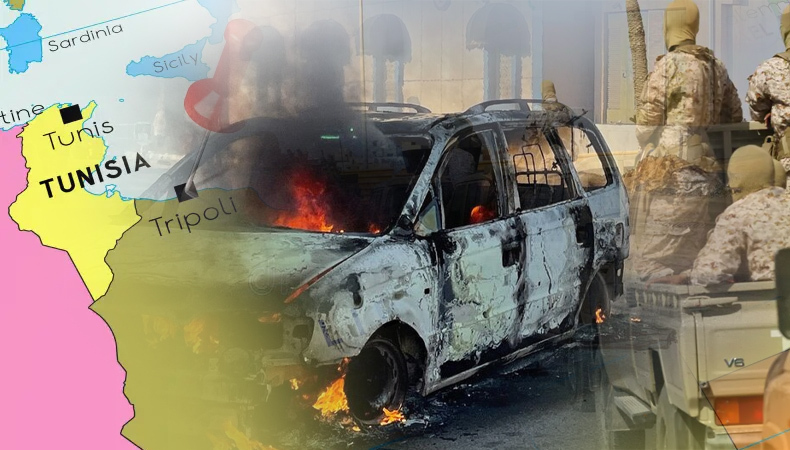Escalating Clashes Between Rival Militias Engulf Tripoli, Stranding Residents and Raising Concerns

Tripoli, the capital of Libya, has been the scene of fierce fighting between opposing militias that have imprisoned families inside their houses, raising questions about the safety of civilians and the tenuous stability of the area. The 444 brigade and the Special Deterrence Force got into a fight, a massive uptick in tensions that had been building for months. The outbreak of violence highlights Libya’s ongoing difficulties as it tries to move past a decade of civil conflict and political unrest.
After several months of comparative peace, competing militia conflicts flared with increased ferocity, throwing Tripoli back into anarchy. Both powerful and well-armed forces in Libya, the 444 Brigade and the Special Deterrence Force were at odds. The Special Deterrence Force reportedly detained the leader of the 444 brigade at an airport in Tripoli, which served as the immediate catalyst for the violence. This act sparked a violent conflict that swiftly spread to many parts of the city, along with old grudges and unresolved issues.
Tripoli’s civilian population has been devastated by the fighting, with residents confined inside while the fighting rages outside. The nation’s health ministry has voiced concern over the state of affairs and pleaded with the opposing parties to permit emergency personnel and ambulances access to the troubled areas. The safety of civilians caught in the crossfire and the possibility of a humanitarian disaster developing greatly concern humanitarian organisations. The fact that the precise number of casualties is still unknown emphasises how chaotic the situation is and how difficult it is to get reliable information amid the chaos.
Keep Reading
The United Nations Support Mission in Libya promptly denounced the bloodshed and demanded that the armed clashes cease immediately. The growing violence and potential effects on stability have alarmed the international community, particularly the British and American embassies in Libya. The U.S. Embassy highlighted the urgency of a swift de-escalation to maintain Libya’s strides toward stability and the possibility of free and fair elections.
Conflicts in Tripoli serve as a microcosm of Libya’s more significant difficulties as it works to heal long-standing divisions and pave the way for stability. The nation has been engulfed in chaos since the 2011 NATO-supported revolt that resulted in the overthrow and killing of longtime ruler Moammar Gadhafi. A cycle of political impasse and intermittent violence has been sustained by rival governments in the country’s east and west, each supported by solid militias and other actors.
The recent clashes between rival militias in Tripoli serve as a stark reminder of Libya’s ongoing struggle to establish lasting peace and stability. The escalation of violence following a time of more peaceful conditions highlights the precarious nature of the situation and the difficulties in controlling complicated political, regional, and factional dynamics. Focus focuses on whether Libyan authorities can find a lasting solution to cease the carnage and pave a way towards a more safe and prosperous future for their country as calls for de-escalation from abroad become increasingly strident.







